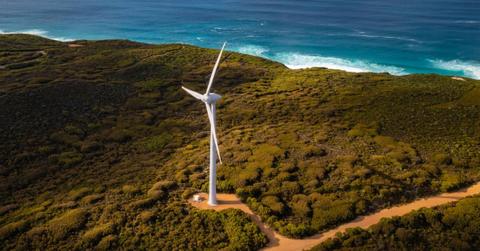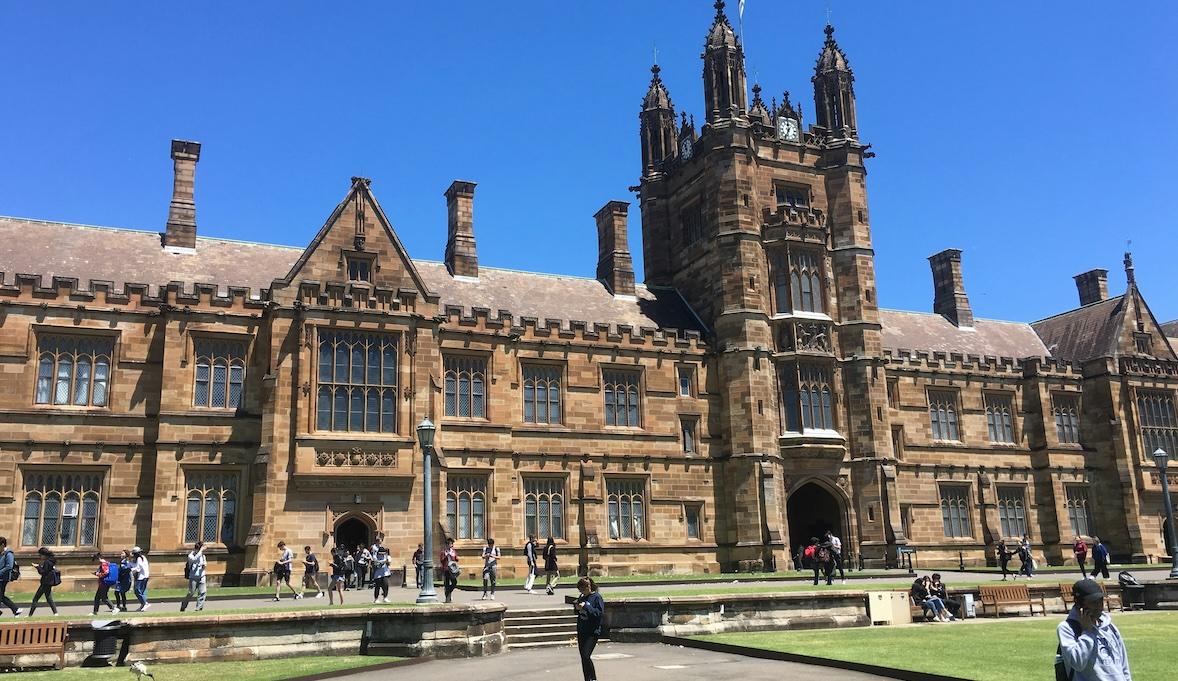Why Australia Is the Perfect Place to Study Sustainability
Australia boasts some of the most job-ready sustainability and environmental research courses.
Published Oct. 6 2025, 2:11 p.m. ET

For international students who want to make a positive impact on the planet and help inspire environmental change from home, from the office, and perhaps even from government agencies, Australia offers a rare combination: world-class universities, groundbreaking research opportunities and unparalleled access to natural environments ranging from the Great Barrier Reef to vast deserts and temperate rainforests.
If you’re considering embarking on a career in sustainability and participating in the unique ecological research being conducted across Australia, your first step will be to complete a degree in environmental science or sustainable development. Thankfully, Australia also boasts some of the most job-ready sustainability and environmental research courses.

Here are just a few reasons why the island continent provides the ultimate learning opportunities for budding environmentalists.
1. A global leader in sustainability education
Australia’s strong international standing in ecological research is backed by countless valuable sustainability courses offered by the country’s leading academic institutions. Australia’s universities consistently rank among the best in the world for sustainability, according to the QS World University Rankings.
Some of the recognition earned by Australian institutions is due to measuring their performance against the United Nations Sustainable Development Goals (SDGs). Using internationally recognised frameworks helps Australian researchers provide insights that can benefit ecological studies not only nationwide, but also globally.
This combination of global recognition and local commitment allows students working in sustainability and other related fields to engage in and contribute to real-world sustainability initiatives. As Australian ecological researchers are at the forefront of many initiatives like sustainable forestry, farming, and fishing (just for starters!), even research projects from undergraduate courses can provide bona fide industry experience and knowledge that’s applicable for global case studies.
2. Cutting-edge research with global impact
From renewable energy technologies to water resource management and biodiversity conservation, Australian researchers are making discoveries that shape international policy and practice every single day.
A couple of examples are the University of Queensland’s (UQ) groundbreaking research into climate change adaptation, sustainable business practices, and conservation biology, with postgraduate courses designed to equip graduates for leadership roles in environmental management.

Majestic Uluru in Australia
Similarly, James Cook University (JCU) is also world-renowned for its expertise in tropical biodiversity and coral reef science, located near the Great Barrier Reef, the largest coral ecosystem on Earth. And UNSW Sydney is also known for advancements in renewable energy and materials science, with a strong emphasis on developing sustainable solutions for urban and industrial settings.
Some of the major benefits of studying sustainability in Australia is that many of these programs also integrate fieldwork, lab placements, and industry collaborations, allowing students to move beyond theory and instead work in the field and towards finding much-needed solutions for all of the world’s most compelling environmental challenges.
3. Diverse and unique learning environments in our backyard
Australia’s unique biodiversity is yet another reason why the land down under provides the perfect setting for an education in sustainability. Ecology students in Australia even have the opportunity to specialise in select biomes depending on the courses they undertake and where those courses are based geographically.
For instance, students who are curious about marine ecosystems and rainforest networks can study reef protection and marine biology plus rainforest biodiversity at the University of Queensland. The Tasmanian wilderness (also a UNESCO World Heritage Listed Site like the Great Barrier Reef) provides ample opportunities for studying Gondwana heritage forests and the global impacts of deforestation.
For students looking to understand desertification and resource challenges surrounding rural land management (i.e. droughts and soil studies), arid areas across regional Australia provide the perfect playground for climate-ready agricultural studies.
And finally, Australia’s unique urban settings provide immense insights into futureproofing urban planning, transit networks, and energy systems. Australia is also rapidly adopting satellite city models to remove the strain placed on ever-expanding urban centres like Melbourne and Sydney. With regional hubs like Geelong in VIC and Newcastle in NSW growing in force, there are plenty of learning opportunities for civil engineering students looking to gain a robust climate-ready education.
4. Interdisciplinary courses with real-world relevance
Australian universities design their sustainability courses to reflect the interconnected nature of environmental challenges. A typical degree in environmental science or sustainable development may include core sciences like biology, chemistry, physics and earth sciences as well as specialised subjects. Students can then choose a speciality focus of interest like climate change, conservation biology, renewable energy, environmental law and impact assessment.

University of Sydney
Then within these units, Australian universities are at the forefront of applied learning, with field trips, laboratory research, internships with NGOs and industry projects in a diverse biosystem. For example, UTS Online offers a range of sustainability programs that provide excellent applied learning opportunities in professional contexts. Through case studies, industry collaboration and project-based assignments, this approach helps students learn to apply theory to practice, preparing them to make an immediate impact in their workplaces and communities.
This focus on experiential learning mirrors real life: addressing sustainability requires the ability to implement solutions, communicate with stakeholders and adapt to complex systems – environmental, social and economic. Studying in Australia equips students with these practical skills, ensuring they are ready to work across scientific, corporate and policy settings from day one.
5. Career opportunities in a growing field
Sustainability is a global priority, and governments, businesses, and non-profits are actively seeking professionals who can help address environmental and social challenges while driving sustainable growth.
That means there are some great opportunities for educated professionals in the field. As graduates of an Australian sustainability program, you can go on to environmental jobs and careers in roles like:
- Environmental Scientist or Ecologist
- Sustainability Consultant
- Renewable Energy Specialist
- Conservation Officer or Wildlife Manager
- Environmental Lawyer or Policy Advisor
- Corporate Social Responsibility (CSR) Manager
With Australia’s strong reputation in sustainability education, qualifications earned here are recognised and respected worldwide. Many universities also maintain close ties with government agencies and industry partners, offering students networking opportunities and practical experience that can lead directly to employment.
Wrapping Up
Australia has long been known for its unique landscapes, diverse ecosystems, and high-quality education system. In recent years, Australian universities have built a strong reputation for combining world-class teaching, influential research, and hands-on learning with access to some of the most diverse ecosystems on the planet.
Their strong focus on the UN Sustainable Development Goals, with high international rankings and extensive career opportunities, make them a fantastic choice for students who want to make a difference.